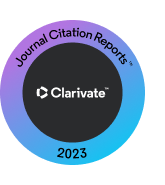ATTRIBUTES OF DYSTROPHIC LATOSOL IN SOUTHERN MINAS GERAIS AFTER APPLICATION OF SEWAGE SLUDGE
DOI:
https://doi.org/10.5327/Z2176-947820151914Keywords:
soil fertility; organic waste; biosolids.Abstract
In general, tropical soils present low natural fertility, which results in a great
amount of degraded areas if it is associated with improper handling. Sewage
sludge, due to its high levels of organic matter and nutrients, can improve soil
properties. Thus, this study evaluated the conditioning and fertilizing effects
of sewage sludge on the attributes of a typical dystrophic latosol in Southern
Minas Gerais. The experiment evaluated the application of sludge from
Santana wastewater treatment plant in Varginhas (Minas Gerais, Brazil) in
pots, with concentrations equivalent to 60, 120, and 180 t ha-1, and a control
treatment without sludge. The sewage sludge has increased the levels of
organic matter, cation-exchange capacity, sum of the bases and nutrients,
as well as increased porosity and decreased soil density, thus indicating the
potential for conditioning and fertilizing agricultural soils.
Downloads
Downloads
Published
How to Cite
Issue
Section
License
Copyright (c) 2015 Revista Brasileira de Ciências Ambientais

This work is licensed under a Creative Commons Attribution 4.0 International License.


























